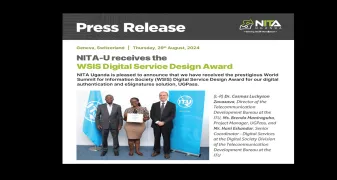- High-speed National Backbone fibre reaches Kanungu district as Uganda’s digital revolution goes nationwide
The National Information Technology Authority – Uganda (NITA-U) in collaboration with the Office of the President and the Ministry of ICT & National Guidance officially launched the extension of Phase 5 of the National Backbone Infrastructure (NBI) project in Kanungu District.












